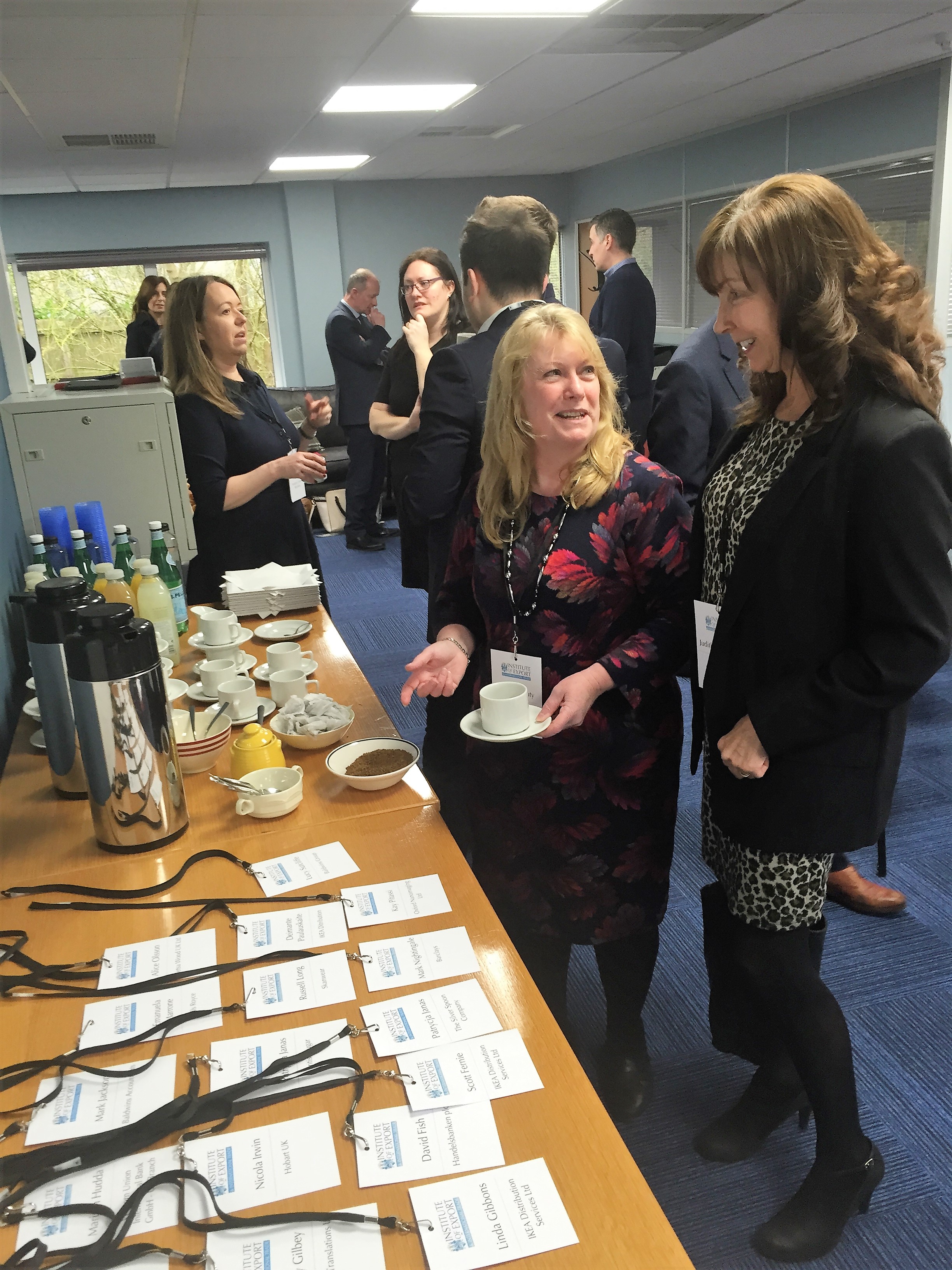The UK government is using “a carrot and stick approach” in its dealings with firms that trade internationally as full Brexit approaches, a gathering of Peterborough business people heard this morning.
At a packed breakfast session at the Institute of Export & International Trade headquarters in Peterborough, representatives from local firms were talked through how to prepare for Brexit.
Marco Forgione, Institute of Export director general: "There is no other route after Brexit. We have to invest in a high-skill workforce, which includes building expertise in import/export.”
Introducing the event, Institute director general Marco Forgione said that “for the first time in three generations, the UK is free to introduce a low tariff, liberal, globally focused, free-trade environment”.
‘Carrot and stick’
To ease businesses into the post-Brexit world, the government is using “a carrot and stick approach”, Forgione told more than 50 local business representatives, all of whom are already trading internationally, or are preparing to do so.
The carrot, Forgione said, was the “generous government grant for training in how to trade internationally”. The stick, on the other hand, is the government’s policy to “cut off the supply of cheap labour to the UK” through its new immigration policies.
“There is no other route,” Forgione said. “We have to invest in a high-skill workforce, which includes building expertise in import/export.”
Ian Burt of Barclays (left) and Mark Jackson of Baldwins Accountants
Forgione urged attendees to apply for the free government training grant “before it runs out in January 2021” to get familiar with post-Brexit trading rules.
Advice on new rules
The seminar included advice on the complex export and import rules that will apply in the event of a trade deal with the EU and in a no-deal scenario.
"Get familiar with Rules of Origin, Incoterms and Transit Policies if you want to trade internationally post-Brexit," attendees were told.
Kevin Shakespeare, director of stakeholder engagement, said that in the current trade deal discussions with the EU, those around Rules of Origin – which require companies to prove their products are mostly manufactured in the UK – “will be pivotal”.
Institute of Export team from left - Sam Pileggi (Commercial Director); Marco Forgione (Director General); Helen Hastie (Training Manager) and Kevin Shakespeare, Director of Stakeholder Engagement
He urged attendees to familiarise themselves with Transit Policies and Incoterms – the International Chamber of Commerce’s product category codes that must be included on customs forms – to understand the procedures that will facilitate easier transport of goods to and from the EU.
‘A career in customs’
Earlier, the Institute’s commercial director, Sam Pileggi, said that “customs skills will be more in demand than ever” after the Brexit transition period ends on 31 December 2020. “We want to make international trade a career that people choose to pursue,” she added.
Angela Douty, AC Plc (left) and Judith Broughton, Anne Corder Recruitment Ltd
See the Institute’s range of courses and qualifications in trading internationally here







